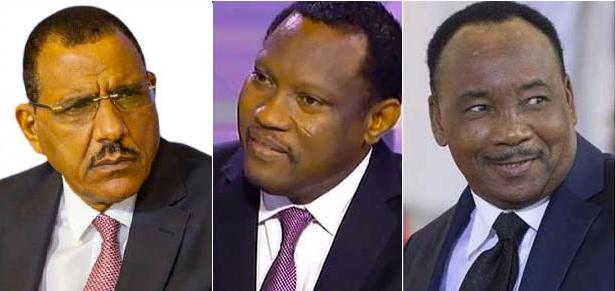MINUSMA: The world’s deadliest peacekeeping mission
Published on Thursday 22 February 2018 Back to articles
MINSUSMA personnel on patrol (Photo: The Citizen)
The United Nations’ Multidimensional Integrated Stabilization Mission in Mali (MINUSMA) was created in April 2013 — three months after France’s military intervention in Mali (Operation Serval) — and now comprises 13,000 soldiers. The mission’s head, Mahamat Saleh Annadif, told the Integrated Regional Information Networks (IRIN) — a previous UN programme now turned independent — news agency that: ‘The UN has been deployed [here] without a peace agreement, while [signing a peace agreement] is usually a condition for sending a peacekeeping mission. On the other hand, the idea that MINUSMA came here to fight terrorists is based on a significant misunderstanding between Malians and MINUSMA, a misunderstanding that unfortunately still exists today.’
The force has many critics. In Mali and abroad, spending more than US$1 billion a year is questionable when the mission has been unable to fulfill its core tasks of protecting civilians and defending human rights. To make matters worse, the killing of civilian protesters by peacekeepers and the list of rape charges against MINUSMA soldiers have tarnished the mission’s reputation.
Because of its neutrality, MINUSMA has strained relations with the Malian government. According to Bamako, it is MINUSMA’s neutrality concerning certain rebel groups that has prevented the Malian state from regaining sovereignty over the entire country.
Menas Associates’ view is that — in the absence of MINUSMA — the Malian state would not be able to regain sovereignty over much of the country. Mali’s army, in spite of all the training it has received from the EU (see below), is still deemed unfit for purpose. One former Malian minister, referring to the effective collapse of the Malian state in 2012 — when the Islamist insurgents and Tuareg rebels took control of northern Mali (Azawad) — said: ‘the roots of Mali were rotten. It was enough for a weak breeze for the country to collapse.’
The Malian state is currently absent from most of the country. By mid-December 2017, barely 25% of government officials were in their posts in the six northern and central regions of the country. And, according to a count by the opposition parties, 2017 was the deadliest year since Mali’s President Ibrahim Boubacar Keita (IBK) came to power in 2013.
The Forces Armées Maliennes (FAMA) official armed forces are going through one of the deadliest periods of their existence. More than 700 were killed last year in Mali including many soldiers. For the first five weeks of 2018, more than 80 people including soldiers, died. On 25 January around 40 people — including soldiers — were killed in 24 hours, mostly in central Mali. Some reports put the number nearer to 60.
Army morale is at its lowest. A statement released by a dozen of Mali’s opposition parties at the beginning of February, denounced the deteriorating security situation. They accused the government and IBK of carelessness, recklessness and incompetence, and demanded explanations.
The limits for MINUSMA as a peacekeeping force have been cruelly exposed. The most recent report of the UN Secretary-General on Mali states that ‘the lack of armoured personnel carriers, including mine-protected vehicles, has remained a major obstacle to the Mission’s operations.’ The previous report (September 2017) said that its mandate to protect civilians had been compromised by ‘the lack of adequate air assets’.
MINUSMA is paying the price for the failure of the 2015 signed peace agreement, which it is mandated to supervise. So far 133 peacekeepers have died in Mali which makes it by far the most deadly ongoing peacekeeping mission. Jihadist groups have made the blue helmets specific targets.
If you would like to discuss the article, region, or receive a free version of the Sahara Focus publication, then contact our Africa team.



